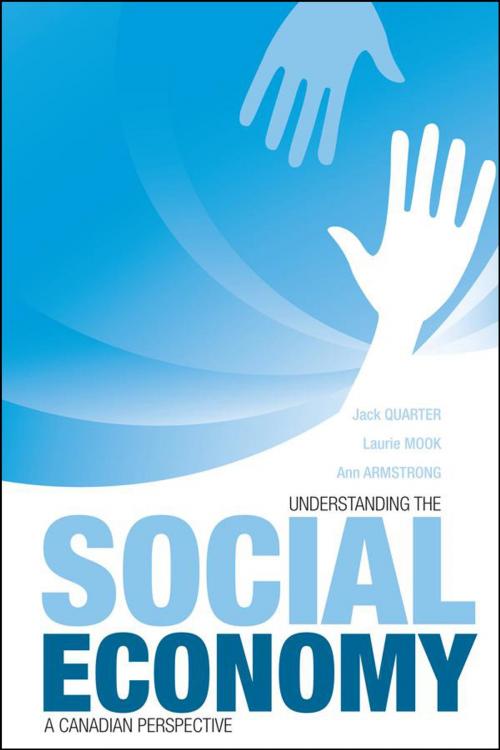Understanding the Social Economy
A Canadian Perspective
Business & Finance, Business Reference, Infrastructure, Industries & Professions, Nonprofit Organizations & Charities, Nonfiction, Social & Cultural Studies, Social Science, Sociology| Author: | Jack Quarter, Laurie Mook, Ann Armstrong | ISBN: | 9781442697218 |
| Publisher: | University of Toronto Press, Scholarly Publishing Division | Publication: | November 7, 2009 |
| Imprint: | Language: | English |
| Author: | Jack Quarter, Laurie Mook, Ann Armstrong |
| ISBN: | 9781442697218 |
| Publisher: | University of Toronto Press, Scholarly Publishing Division |
| Publication: | November 7, 2009 |
| Imprint: | |
| Language: | English |
In Understanding the Social Economy, Jack Quarter, Laurie Mook, and Ann Armstrong integrate a wide array of organizations founded upon a social mission - social enterprises, nonprofits, co-operatives, credit unions, and community development associations - under the rubric of the 'social economy.' This framework facilitates a comprehensive study of Canada's social sector, an area often neglected in the business curricula despite the important role that these organizations play in Canada's economy.
Invaluable for business programs that address issues such as community economic development, co-operatives, and nonprofit studies and management, Understanding the Social Economy presents a unique set of case studies as well as chapters on organizational design and governance, social finance and social accounting, and accountability. The examples provide much needed context for students and allow for an original and in-depth examination of the relationships between Canada's social infrastructure and the public and private sectors. With this work, Quarter, Mook, and Armstrong illuminate a neglected facet of business studies to further our understanding of the Canadian economy.
In Understanding the Social Economy, Jack Quarter, Laurie Mook, and Ann Armstrong integrate a wide array of organizations founded upon a social mission - social enterprises, nonprofits, co-operatives, credit unions, and community development associations - under the rubric of the 'social economy.' This framework facilitates a comprehensive study of Canada's social sector, an area often neglected in the business curricula despite the important role that these organizations play in Canada's economy.
Invaluable for business programs that address issues such as community economic development, co-operatives, and nonprofit studies and management, Understanding the Social Economy presents a unique set of case studies as well as chapters on organizational design and governance, social finance and social accounting, and accountability. The examples provide much needed context for students and allow for an original and in-depth examination of the relationships between Canada's social infrastructure and the public and private sectors. With this work, Quarter, Mook, and Armstrong illuminate a neglected facet of business studies to further our understanding of the Canadian economy.















